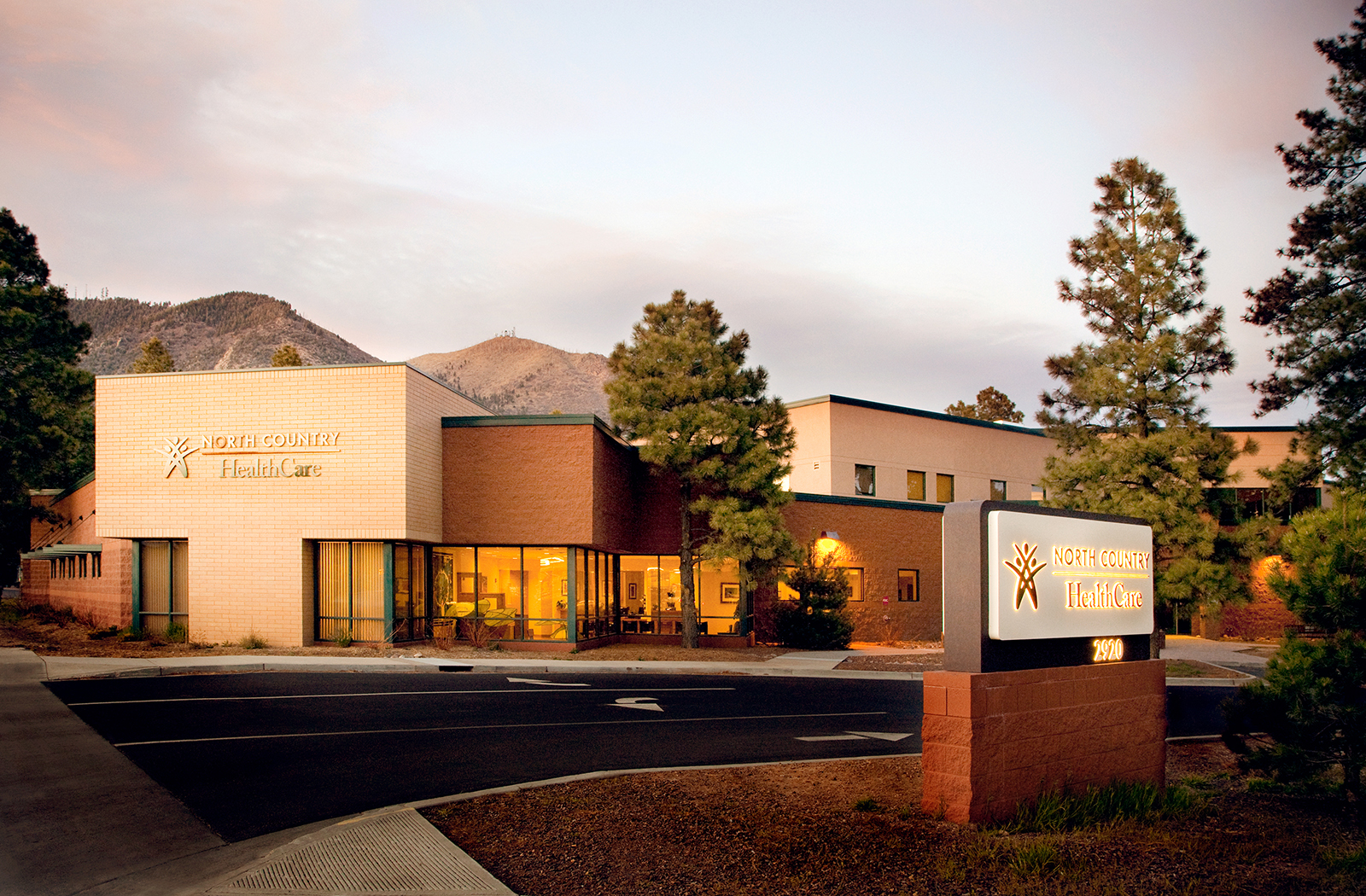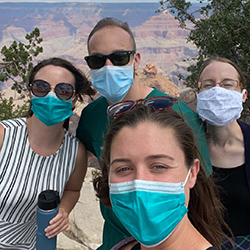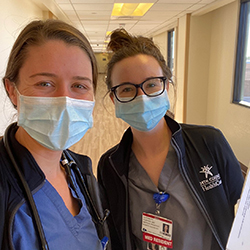
New Family Medicine Residency Introduces Residents to Rural Northern Arizona

A new family medicine residency program based in Flagstaff will recruit four residents to the northern Arizona community each year — where they will spend three years in training, treating patients in underserved areas, in up to 13 diverse rural communities.
The Colorado Plateau Family & Community Medicine Residency at North Country HealthCare, which is an academic partner of the University of Arizona College of Medicine – Phoenix, started with its first cohort of residents on June 29.
There are more than 70,000 people in Flagstaff, which is the primary location of the residency; however, residents will travel across northern Arizona to provide care to a number of areas that include Winslow, Show Low, Williams, Tuba City, Polacca and Whiteriver. Through this training, residents will be exposed to all aspects of rural medicine from urgent care rotations at the Grand Canyon National Park to primary care at Native American reservations. This is one of only a few residency training programs in the country with required rotations in Indian Country.

The three core faculty members of the program include Dr. Paul and two other North Country physicians who are eager to teach, Brandon Abbott, DO, and Bethany Davis, MD. Faculty members, along with an interdisciplinary team, work with residents to help them gain clinical experiences in the community health center. Residents work alongside providers and staff who are committed to serving others and caring for the whole person.
As a resident, they learn to care for high-needs patients who have limited resources and limited access to care as part of a safety net system. They have the opportunity to treat a diverse group of patients in the full spectrum of their illness and social milieu, while being supported by a diverse staff who assist patients and families through a well-developed community outreach network.
The Family Medicine Residency is embedded into the community through all three years of the curriculum. Residents have already been involved with Flagstaff’s local community food banks, shelters and behavioral health organizations, with more planned in the second and third year of residency.
“Community involvement is critical as it allows residents to see the full spectrum of care and health challenges patients may face in these rural areas,” Dr. Paul said. “We want our residents to get to know the Flagstaff area, but also the rural communities where they will rotate in northern Arizona.”
Jonathan Cartsonis, MD, director of the Rural Health Professions Program, and Katie Brite, MD, associate dean of Clinical and Competency Based Education at the College of Medicine – Phoenix, were instrumental in helping create this program with the hopes that it improves the physician shortage in rural Arizona and provides additional educational opportunities for College of Medicine – Phoenix students. Additionally, through the leadership of Cheryl O'Malley, MD, associate dean of Graduate Medical Education, and Steven Lieberman, MD, senior associate dean of Academic Affairs, the medical school was able to forge a closer collaboration with North Country.
“The opening of the Colorado Plateau-Flagstaff residency is a big development for physician recruitment in rural Arizona communities,” Dr. Cartsonis said. “Rural doctors are aging, most are in their mid-50s, and many are expected to retire within the next decade. For rural health systems, that's insult to injury when you consider rural areas already struggle with physician shortages. We know that resident physicians are likely to practice where they completed residency training, so this program's rural focus will have a big impact over time.

Arizona is facing a severe doctor shortage across all counties, especially in primary care. This shortage is more prominent in rural Arizona and is predicted to worsen. With a dearth of primary-care physicians, rural Arizona is faced with overworked and stressed physicians, a lack of coverage in underserved areas, time constraints on patient-providers interactions and prolonged wait times before consultations.
In 2019, North Country and the Arizona Hospital and Healthcare Association (AzHHA) commissioned an economic impact study to ascertain how a family medicine residency program would affect the economy and patient access to care. The result of the independent economic-impact study shows “significant positive economic impact” to the state and expanded patient access to care over the next ten years. The study, prepared by Rounds Consulting Group, Inc., estimates that increasing the number of physician residents at North Country HealthCare alone will result in 136 high-paying jobs and $151.7 million in economic output for northern Arizona over a ten-year period.
The program, which has been more than five years in the making, received accreditation by the ACGME (Accreditation Council for Graduate Medical Education) in 2017. In its first two rounds of applicants, they received more than 50 applications from graduates of Arizona medical schools. Dr. Paul said the program hopes to expand to six residents per year in the future and will be accepting the next group of residents in March 2021 to begin their training that summer.
About the College
Founded in 2007, the University of Arizona College of Medicine – Phoenix inspires and trains exemplary physicians, scientists and leaders to advance its core missions in education, research, clinical care and service to communities across Arizona. The college’s strength lies in our collaborations and partnerships with clinical affiliates, community organizations and industry sponsors. With our primary affiliate, Banner Health, we are recognized as the premier academic medical center in Phoenix. As an anchor institution of the Phoenix Bioscience Core, the college is home to signature research programs in neurosciences, cardiopulmonary diseases, immunology, informatics and metabolism. These focus areas uniquely position us to drive biomedical research and bolster economic development in the region.
As an urban institution with strong roots in rural and tribal health, the college has graduated more than 1,000 physicians and matriculates 130 students each year. Greater than 60% of matriculating students are from Arizona and many continue training at our GME sponsored residency programs, ultimately pursuing local academic and community-based opportunities. While our traditional four-year program continues to thrive, we will launch our recently approved accelerated three-year medical student curriculum with exclusive focus on primary care. This program is designed to further enhance workforce retention needs across Arizona.
The college has embarked on our strategic plan for 2025 to 2030. Learn more.